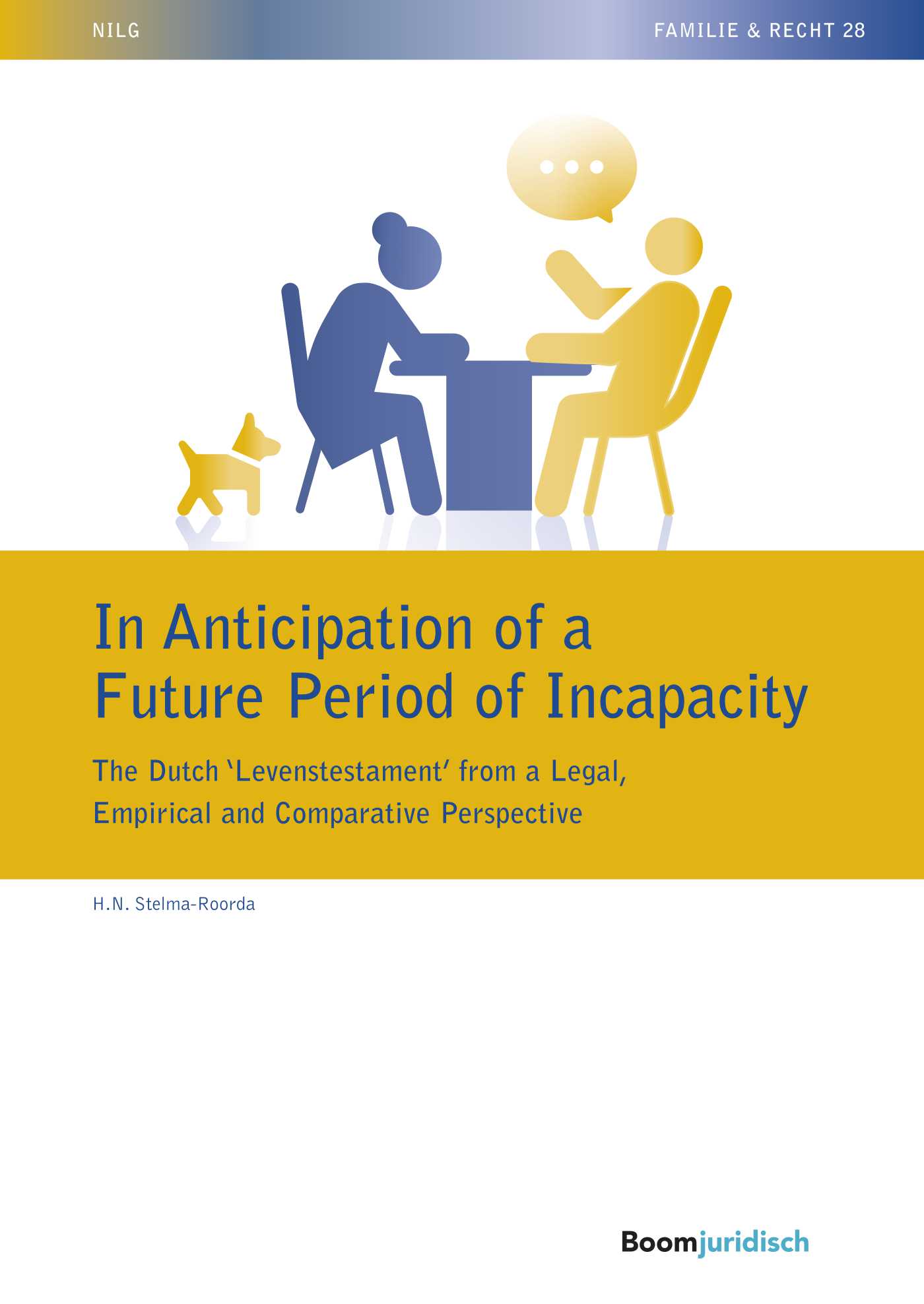About this search function
You can search through the full text of all articles by filling in your search term(s) in the search box. If you press the ‘search’ button, search results will appear. This page contains filters, which can help you to quickly find the article you are looking for. At the moment, there are two different filters: category and year.
About Family & Law
Family & Law is a multidisciplinary open-access multilingual double-blind peer-reviewed online journal in the field of legal and related social and behavioural science research regarding family, children, law of persons and the protection of vulnerable adults.
Family & Law is a multidisciplinary journal. The target group consists of academics, practitioners and policy-makers dealing with legal and relevant social, behavioural sciences issues, related to family, children and the protection of vulnerable adults.
Family & Law is an open-access journal, aimed at providing a platform for an unrestricted exchange of knowledge and broad academic debate between experts from various disciplines and jurisdictions. It embraces the idea that academic research, financed from public funds, should be freely accessible to the academic community and general public, rather than hidden behind a paywall. All contributions are full open access (free to view, download and print). It is facilitated with the generous support of Boom Legal Publishers. Authors do not have to pay fees for publishing their contributions and do not receive any royalties.
Family & Law is a multilingual journal. Contributions can be published in English, German, French or Dutch. Contributions published in languages other than English should include an English summary.
Family & Law is a double-blind peer-reviewed journal. Contributions undergo a double blind peer review procedure. Reviewers remain anonymous for the author – and the author for the reviewers.
The editors, the Advisory Board and the permanent reviewers include leading academics from legal and social science disciplines from various European jurisdictions.
Family & Law is closely linked to the Family Law in Europe Academic Network FL-EUR (https://fl-eur.eu/), as most of the members of the Editorial Board are members of the FL-EUR network.
Family & Law is an online journal only which is accessible free of charge for everyone. It has no fixed maximum length of contributions which allows publication of contributions of substantial length.
Authors can submit the following original high-quality academic contributions related to the aforementioned subjects:
- Multidisciplinary studies combining legal and behavioural or social science perspectives and/or empirical research;
- Comparative analysis of laws of several countries or jurisdictions;
- Multidisciplinary, empirical legal studies and/or comparative research reports;
- Comprehensive theoretical analysis of domestic laws of one jurisdiction;
- Systematic reviews;
- Book reviews.
‘Series of National Reports’ is a new category of peer-reviewed publications, added in 2023. Depending on the feasibility, it might be blind peer-review, but there is also the option of open peer review. Series of National Reports, produced in the framework of large-scale comparative family law projects, can be published in Family&Law upon admission by the Managing Editors. Coordinators of large-scale comparative family law projects, wishing to publish the series of the National Reports in Family&Law can submit a proposal (including a short description of the project methodology and the questionnaire) by email to the Editorial Board (familyandlaw@boomdenhaag.nl). Decisions on the publication of the series of Reports are to be taken by the Managing Editors. Once the Managing Editors have decided on publication of the series of reports, individual National Reports will be submitted to a blind/open peer-review of two members of the Editorial Board. Only reports meeting high quality comparative research and language standards will be admitted to publication.
Procedure
In order to ensure anonymity throughout the double-blind peer-review procedure Family & Law makes use of the special double blind peer review editorial system: Editorial Manager.
Step 1. Submitting contributions:
Authors should submit their anonymised contributions through the Family & Law website (www.familyandlaw.eu) using Editorial Manager (see the tab ‘submitting an article’). Please notice: the anonymization should be done by authors themselves
Step 2: Preliminary assessment
A submitted contribution is first assessed by two members of the Editorial Board as to its academic quality, language and fit with the profile of the Journal. This preliminary assessment is not blind. The preliminary assessment is expected to take between three and four weeks.
Step 3: Peer-review
Contributions rendered suitable for peer-review are sent by the secretary, via Editorial Manager for a double-blind peer review, to two external reviewers. Book reviews are subject to double-blind peer review by one external reviewer. The review period is expected to take between six and eight weeks.
The reviewers can provide one of the following assessments:
- the contribution is suitable for publication without revision;
- the contribution is suitable for publication after minor revisions;
- the contribution is suitable for publication after major revisions;
- the contribution is not suitable for publication.
Step 5. Revision of contribution (optional)
If reviewer(s) find the contribution suitable for publication after minor or major revisions, authors are asked to revise their contribution on the basis of the provided anonymised feedback. In case of major revisions, the revised contribution can either be sent for a second review to the same reviewer(s) or assessed by one or two editors who decide whether it shall be published or rejected.
Step 4: Decision to publish
The final decision regarding publication is taken by the editors on the basis of the reviews. Contributions found to be suitable for publication by both reviewers proceed to publication.
Contributions found to be suitable for publication after revision by one or both reviewers are published after satisfactory revision has taken place.
Contributions found to be unsuitable for publication by one of the reviewers can, depending on the judgment of the other reviewer, either be sent to a third anonymous reviewer or rejected after assessment of the reviews by one or two editors.
Contributions found to be unsuitable for publication by both reviewers will be rejected and returned to the author with the anonymised feedback.
Recent articles
- Same-sex couples in European private international law – finding a path through the labyrinth Dr. Máire Ní Shúilleabháin Family & Law, May 2024
- Extremist beliefs and child protection Lisette Dirksen Msc, Dr. mr. Nadia Ismaïli, Dr. Elanie Rodermond, Prof. dr. mr. Catrien Bijleveld en Prof. dr. mr. Masha Antokolskaia Family & Law, April 2024
- Establishing Parenthood through Adoption and Surrogacy: A Test Case for the ECtHR Use of the Best Interests of the Child Principle Rachele Zamperini LLM Family & Law, March 2024
- Legal relations among adults and children in view of changing family structures in Austria dr. Elmar Buchstätter Family & Law, February 2024
- Representation of Vulnerable Adults in Finland in the Light of the CRPD dr. Katja Karjalainen Family & Law, February 2024
- ‘Nesting’ as a legal issue – Polish example with comparison to other jurisdictions? Daniela Wybrańczyk Ph.D. Family & Law, February 2024



